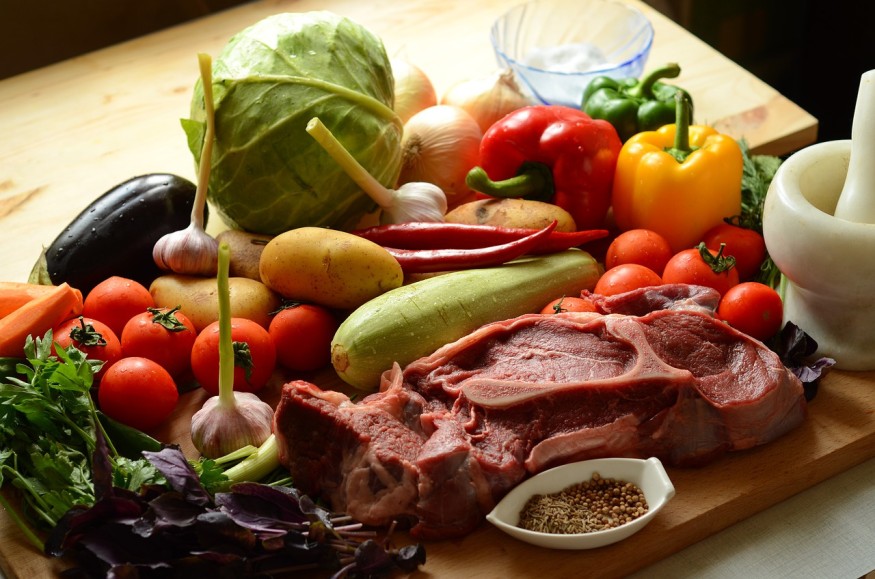The body changes a lot as one ages. For instance, the digestive system can no longer digest certain foods. Stress, alcohol use, and chronic lifestyle are only a few of the factors that weaken or damage the digestive system. So, to enjoy a healthy digestive system, people in advanced years should be very particular in what they consume.

Foods Older Adults Should Avoid
A disturbance to the mechanical and chemical processes during digestion could trigger the gastrointestinal tract to retaliate during mealtime or to certain foods. To prevent this from happening, here are some foods that older adults should avoid, according to WebMD.
1. Dairy
The weakened digestive system of older adults already finds it challenging to digest milk or dairy products. But experts suggest eating a small amount of dairy or calcium-rich foods to ensure the body still gets enough calcium. Non-fat plain yogurt, low-fat cheese, and lactose-free dairy products are nutritious too.
2. High-Sodium Foods
Eating too many salty foods raises blood pressure and puts people at higher risk of heart attack and stroke. So, the American Heart Association (AHA) recommends older adults aged 51 and up watch the amount of their sodium intake to up to 2,300mg per day. But for those in the high-risk group, AHA says to only consume 1,500mg of sodium per day.
3. Raw Vegetables
Raw vegetables are strictly not recommended for older adults with sensitive, decayed, or missing teeth. Cook vegetables until they are soft enough to chew to still get their nutritional value. Another alternative is to puree these vegetables in soups or stews.
4. Grapefruit
According to WebMD, grapefruit can affect how some medications work. For instance, they could interact with the drugs for high blood pressure, anxiety, or insomnia. Other citrus fruits like oranges and limes are recommended to not miss out on vitamin C and potassium.
5. Meat
Although lean steak is one of the healthiest cuts of meat, older people have a harder time chewing them. More so, a hamburger is often less nutritious because 20% to 30% of it is fat even though it is to chew. Experts recommend lean ground beef with less than 10% fat or fish as a healthier protein source.
6. Caffeine
Caffeine makes some people feel anxious or jittery and increase heart rate, which causes sleeping problems. But cutting back on caffeine intake so suddenly is not recommended as it could cause headaches, nausea, or vomiting. Slowly stop drinking caffeine by replacing them with herbal tea or decaf coffee or reducing the amounts of coffee drinks every day.
7. Alcohol
Alcohol could affect the body differently as it ages. A glass of wine with dinner or a beer while watching TV may have relaxed a young person, but it can disrupt their sleep and raise blood pressure in old age. It also can cause hypoglycemia in people with diabetes and may affect how medicines work.
ALSO READ : How Much Salt Should a Person Take Each Day? Cutting Sodium Intake Decreases Risk of Cardiovascular Disease
Reasons Why the Body Gets Sensitive to Some Foods in old Age
Nutrition is eating a healthy and balanced diet, so the body gets the nutrients it needs to function properly. These nutrients, such as carbohydrates, fats, proteins, vitamins, and minerals, come from the foods that we eat. However, the body changes as it gets older and so staying healthy means taking in less of their favorite foods.
But as explained in an article in Eating Well, the body gets sensitive to digesting certain foods that were once easier to process. It could be due to the following reasons:
- Weakened chewing skills
- Reduced saliva production
- Taking maintenance medications
- The body is not producing enough lactase
- High blood sugar
- Low on stomach acid
- Decrease in biodiversity and composition of gut bacteria
RELATED ARTICLE: Nutritionist Explains Why Mediterranean Diet is the Best Diet for the New Year; Warns Against Keto
Check out more news and information on Nutrition in Science Times.











